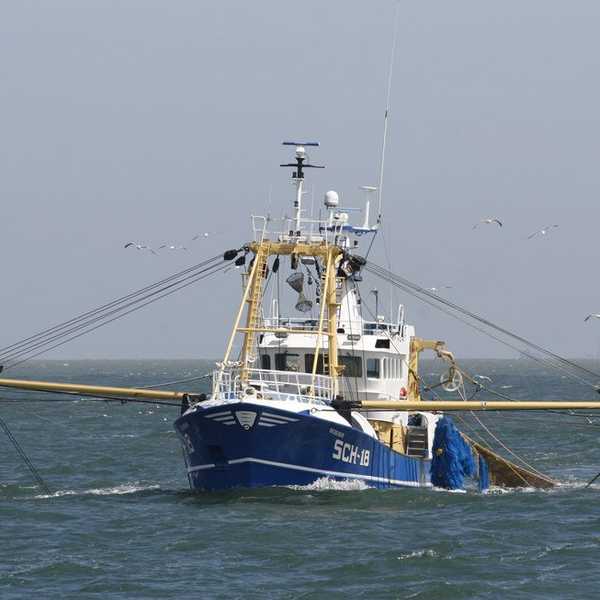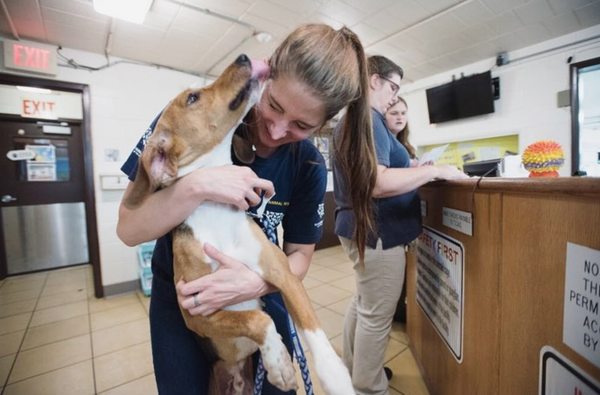I have just returned from a beach cleanup on a very small island. On Little Cayman, an island smack dab in the middle of the circle formed by Cuba, Haiti, and Central America, most of the trash that washes up on its shores has not been produced by the island itself. Most of the bottles I picked up today were marked in Spanish (“vinagre” or “agua de colonia”), probably hailing from the Dominican Republic or Honduras, just like some of the ex-pat residents that live here. Little Cayman has a population of 150, and a turnout of about a third of that (including tourists) showed up to tidy up its beaches this weekend. The experience was bookended by free fireball shots and hard cider, which was offered to anyone who signed up, and a beachside barbeque with free burgers, free desserts, and more free booze. It’s probably no surprise it was such a popular event.
Mounds of trash lined the beach we were assigned to clean up. We filled over 10 bags with bottles and shards of plastic. That eventually became four full trucks filled with hundreds of pounds of trash. And that’s just from a few hours’ work. It’s amazing how much trash can accumulate on such a small island. It’s the stopper in a vortex of larger land masses, and just a small example of the larger garbage problem we have as humans.
Maybe unsurprisingly, my time here has been punctuated by thoughts about our effect on the environment. There’s an ongoing joke here that marine ecology is just more depressing than terrestrial ecology, because for whatever reason our impact seems even more obvious on the ocean. There’s this widespread dispersal of trash. There’s also a widespread influx of nutrients into the system from sewage and urbanization, causing algae densities to explode, and overfishing, causing top predators to go extinct and alter the whole food web (which consists of “trophic levels,” a hierarchical tier in the food web composed of organisms that generally eat the same food). That’s why, this past week, my time has been devoted to a very common conservation question: how do these bottom-up (increased nutrients leads to increased algae leads to changes in the food web) and top-down (removal of predators leads to explosions of lower trophic levels, can lead to overgrazing or undergrazing of algae) effects interact? We thought that species interactions at three different trophic levels might influence the amount of algae around the island: competition between coral and algae (with more coral, there is less algae, and vice versa), herbivory of algae-eating fish on the algae (intuitively, the more algae they eat, the less algae there is), and predation of these algivores by larger fish (if there are fewer predators because of fishing, that would potentially lead to higher numbers of algivores, which, in turn, would lead to less algae). So basically we looked at how different trophic levels were affecting the algae. This data may sound relatively simple to collect, but one of the other jokes about marine ecology is that it’s just harder than terrestrial ecology. That’s because we’re trying to do everything we do on land in the water, pushed around by waves, trying to breathe while running transect lines, carrying our equipment and weights everywhere we swam, and trying not to freeze by taking our wet suits everywhere. And that’s not to mention the sunburns once you get out of the water. Our procedure basically involved quantifying the amount of algal and coral cover along two reefs around the island, and counting the fish in these areas. To do this, we ran transects (basically just lines of measuring tape that establish a study area) and put down quadrats (a standardized square of ½ meters squared) at random distances along the transect. We would then photograph the quadrats, and analyze them using image software for the percent area covered by algae and coral. Algae and coral squares done, we then had to evaluate the fish densities in the area. This is much harder than it sounds, which I can tell you with absolutely certainty as the designated person assigned to both count and identify fish within a transect. My counts certainly weren’t always accurate, and there may have been a fish or two that slipped by me, especially since they run away from you as soon as you try to count them, but we got it done. One memorable afternoon when coming back from one of our study sites, my friend and I could not stop cackling with laughter from the ridiculousness of science sometimes. Here we were, floating in the middle of the ocean for hours on end, on a particularly stormy day when waves were crashing into us and the ocean seemed dead set on trying to kill us by bashing our brains against urchin-covered corals, trying to put down a quadrat when the waves moved it as soon as we got it in place. “The ocean’s trying to kill us!” we couldn’t stop yelling and laughing as we took off our fins to come inshore. The absurdity of it just seemed irrepressibly hilarious to us.
However, once we emerged with salt in our hair and cuts on our hands, we found some pretty interesting results: only herbivory was influencing algal cover. This makes sense, but it’s curious that competition, especially, wasn’t influencing algal or coral cover. The percent of algal cover had no correlation with the percent of coral cover, which means they probably aren’t connected. This is especially interesting considering other papers that have shown algae sometimes even emits toxins that kill off corals, in addition to competition for space and light. Perhaps there just isn’t enough of either algae or coral here to have competition, which is worrisome in itself. There also wasn’t a huge influence of predation, and, in fact, with increased numbers of predatory fish there were increased numbers of algivorous fish, their prey. This may seem kind of strange, but it actually implies that in a healthy reef system, more algivorous fish can support more predatory fish – there’s a greater abundance of food for all! This was an especially encouraging result because we found more of both, and a greater diversity of fish in general, in the marine protected area (or MPA, a government-protected area of ocean that does not allow fishing or damage of the reef), which is promising evidence that conservation is working on this island. And, maybe the most interesting result of all: none of these factors had any influence on coral cover. So that must depend on some other mechanism, such as recruitment, in which little baby corals float here or there, sometimes by their own volition. Either way, it’s important to understand these kind of interactions, so that fisheries management can protect the fish essential to keeping reefs pristine for people like you or I to enjoy them.
So, here’s my takeaway from this week: we’re certainly messing up the environment. Just try your hand at marine ecology and you’ll see what I mean. Or at a beach cleanup, which might be more accessible. But it’s clear there are things we can do about it, like picking up some trash or not eating some fish.





















